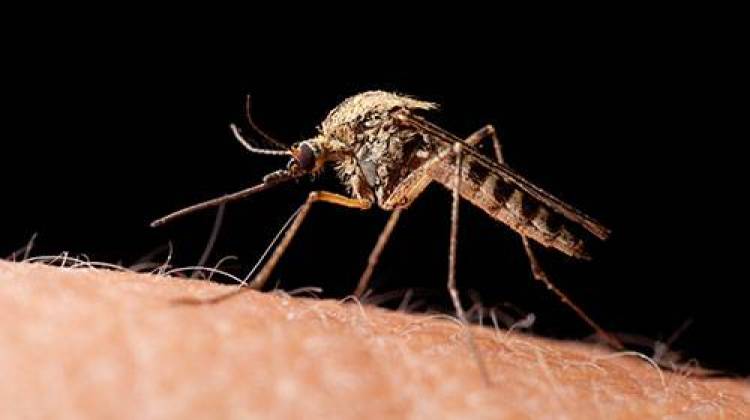State health officials are urging Indiana residents to take steps to protect themselves from mosquito bites after West Nile virus was detected in several areas around the state.
As of Aug. 6, mosquitoes in Allen, Marion and St. Joseph counties have tested positive for West Nile virus. The Indiana State Department of Health says no human cases of West Nile virus disease have been detected this year, but it expects to see increased West Nile activity as the mosquito season progresses.
With outdoor activities becoming more popular during the COVID-19 pandemic, State Health Commissioner Dr. Kristina Box says it's important to be aware of other risks associated with being outside.
“While spending time outside can reduce your risk for COVID-19, it can increase your risk for mosquito-borne diseases,” Box said. “Hoosiers in all parts of the state should take precautions to prevent mosquito bites whenever they are outdoors.”
State health officials recommend the following preventive measures:
- Avoid being outdoors when mosquitoes are active -- especially late afternoon, dusk to dawn and early morning
- Apply an EPA-registered insect repellent containing DEET, picaridin, IR3535, oil of lemon eucalyptus or para-menthane-diol to clothes and exposed skin
- Cover exposed skin by wearing a hat, long sleeves and long pants in places where mosquitoes are especially active, such as wooded areas
- Install or repair screens on windows and doors to keep mosquitoes out of the home
Even a container as small as a bottle cap can become a mosquito breeding ground, so residents should take the following steps to eliminate potential breeding grounds:
- Discard old tires, tin cans, ceramic pots or other containers that can hold water
- Repair failed septic systems
- Drill holes in the bottom of recycling containers left outdoors
- Keep grass cut short and shrubbery trimmed
- Clean clogged roof gutters, particularly if leaves tend to plug up the drains
- Frequently replace the water in pet bowls
- Flush ornamental fountains and birdbaths periodically
- Aerate ornamental pools or stock them with predatory fish
West Nile virus can cause West Nile fever, a mild form of the illness, which can include fever, headache, body aches, swollen lymph nodes or a rash. Some people develop a more severe form of the disease affecting the nervous system, including inflammation in the brain and spinal cord, muscle paralysis or even death.
The health department says people who think they may have West Nile Virus should contact their healthcare provider.
The latest results of ISDH’s mosquito surveillance is available at https://gis.in.gov/apps/ISDH/Arbo/. To learn more about mosquito-borne diseases, visit https://www.in.gov/isdh/27793.htm.
 DONATE
DONATE









 Support WFYI. We can't do it without you.
Support WFYI. We can't do it without you.